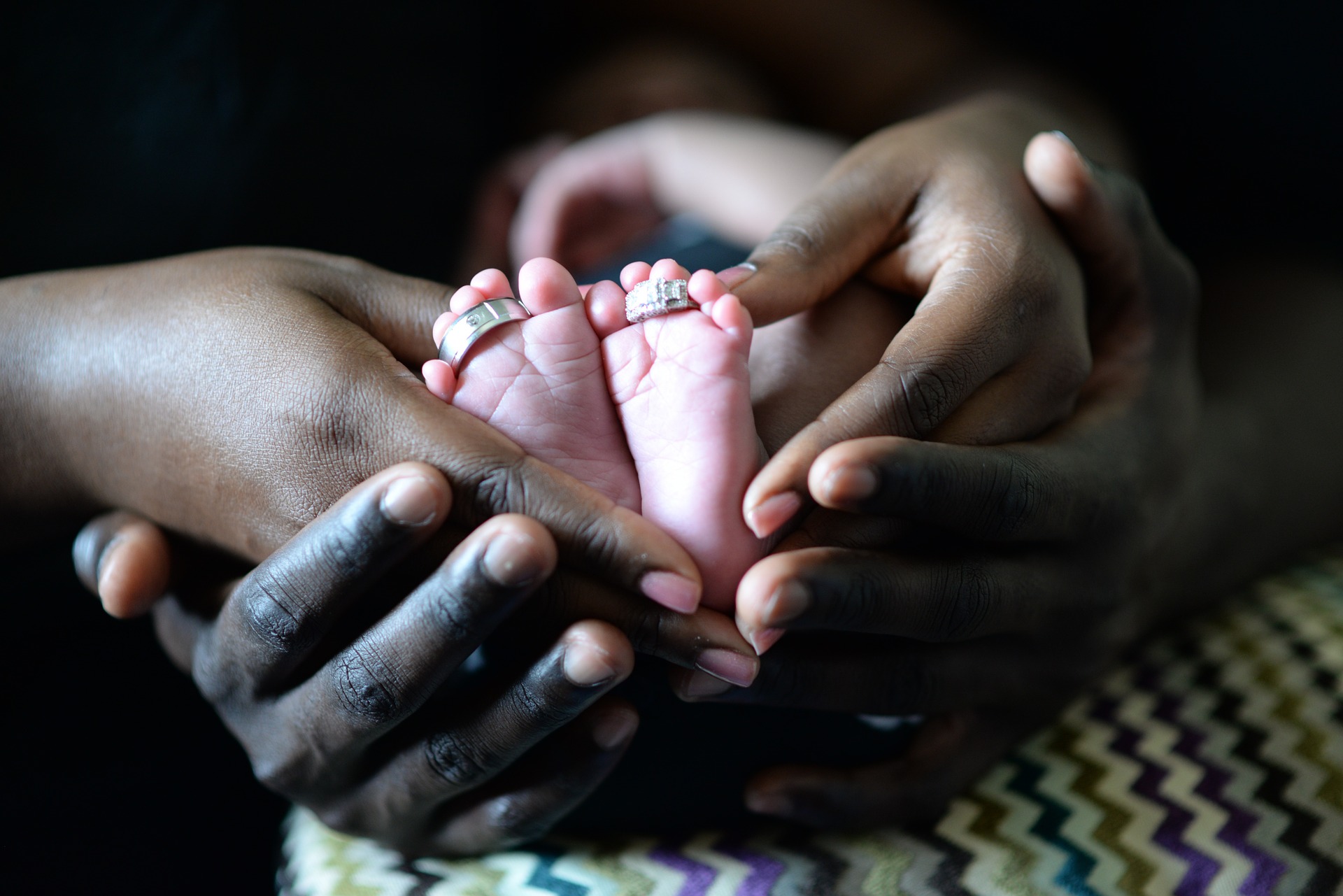Adoption
The origin of the Christian pro-adoption position is grounded on divine authority and the belief that human life is a gift of God! Having said that, Christians must take great care to be sure that the political candidates and parties they support reflect the all-important biblical value that human life is a gift of God. For example, the scriptures state the following:
“I am come that they might have life, and that they might have it more abundantly.” – John 10:10 (KJV)
“Children’s children are the crown of old men; and the glory of children are their fathers.” – Proverbs 17:6 (KJV)
“Don’t you see that children are God’s best gift? The fruit of the womb His generous legacy?” – Psalm 127:3 (Msg)
“He [Jesus] said to them, “Let the little children come to me, and do not hinder them, for the kingdom of God belongs to such as these.”” – Mark 10:14 (NIV)
Obviously, God foresaw the possibility and necessity of infant adoption in the wondrous design of the female body. The Complete Book of Everyday Christianity states, “Adoptive mothers with sufficient motivation and support can breast-feed. Knowing the baby’s approximate due date, the receiving mother can actually induce lactation, even if she has never been pregnant or nursed a child before. If she faithfully expresses her breasts several times a day with a hand-held pump for two to six weeks before the baby’s arrival, her breasts will respond by producing milk”
Biblical law established a clear precedent on the issue of the unborn as well as adoption. In Exodus 21:22, Moses criminalized any violent act that might harm the unborn, even when injury to the fetus occurred INDIRECTLY and ACCIDENTALLY. If this be true, that accidental death of the unborn (resulting from the fallout of a fight between two men) was considered criminal and worthy of punishment, then what is to be said of those who willfully, directly, and deliberately harm the unborn?
“If men strive [fight], and hurt a woman with child, so that her fruit depart from her, and yet no mischief follow: he shall be surely punished, according as the woman’s husband will lay upon him; and he shall pay as the judges determine.” – Exodus 21:22 (KJV)
It is very interesting that this particular biblical precedent falls to Moses; for Moses and his parents were the victims of tyrannical infanticide. Had it not been for the willingness of Pharaoh’s daughter to rescue his life through adoption, the legal world, as we know it, might not exist. Moses is credited by most of the world’s scholars as the father of all law. The Apostle Paul reminisced:
“And when he was cast out, Pharaoh’s daughter took him up, and nourished him for her own son.” – Acts 7:21 (KJV)
With regard to the issue of adoption, New Unger’s Bible Dictionary states:
“Abraham speaks of Eliezer (Genesis 15:3), a house-born slave, as his heir, having probably adopted him as his son. Jacob adopted his grandsons Ephraim and Manasseh, and counted them as his sons (Genesis 48:6), thus enabling him to bestow through them a double portion upon his favorite son Joseph. Most of the early instances of adoption mentioned in the Bible were the acts of women who, because of barrenness, gave their female slaves to their husbands with the intention of adopting any children they might have.”
Not only was adoption the tool through which God redeemed the Hebrew people from the slavery of Egypt and began what is regarded by theologians as “the dispensation of law,” many years later, it became the method through which God raised up an unlikely Persian Queen from an orphaned Jewish girl named Esther.
“And he brought up Hadassah, that is, Esther, his uncle’s daughter: for she had neither father nor mother, and the maid was fair and beautiful; whom Mordecai, when her father and mother were dead, took for his own daughter.” – Esther 2:7 (KJV)
It was through Esther that God defeated the diabolical genocide (the brainchild of Haman) of the Jewish race existing under the auspices of the all-powerful Persian Empire.
Finally, it is the institution of adoption through which the rescue of the entire human race is typified in Jesus Christ. Those who repent of their sins, through the shed blood of Jesus Christ, are spiritually “adopted” by God the Father, and admitted into the family of God as “joint heirs with Christ” and “sons.” (See Romans 8:17.)
“But as many as received him, to them gave he power to become the sons of God, even to them that believe on his name: Which were born, not of blood, nor of the will of the flesh, nor of the will of man, but of God.” – John 1:12-13 (KJV)
“Having predestinated us unto the adoption of children by Jesus Christ to himself, according to the good pleasure of his will.” – Ephesians 1:5 (KJV)
In an article published by the Family Research Council entitled “How Policy Decisions Can Encourage Adoption” Bridget E. Maher writes,
“Most Americans think adoption is a good thing…79 percent of adults reported that they would consider adopting a child, and a Wirthlin Worldwide survey found that 63 percent of adults approved of increasing tax incentives for adoptions. Although Americans are generally favorable toward adoption, infant adoptions have become increasingly rare over the past twenty-five years. A major contributing factor is the decline in the number of infants who are placed for adoption.”
“Thirty years ago it was common for an unwed mother to make adoption plans for her child, but today it is less common. In the early 1970s, about nine percent of babies born to unwed mothers were placed for adoption. But between 1989 and 1995, that number fell to less than one percent.”
Maher continues,
“The legalization of abortion in 1973 also contributed to the decline in the number of infants who are placed for adoption. One study based on national data found a significant drop after 1973 in the number of white babies who were placed for adoption. Between 1965 and 1972, about 19 percent of white babies born out of wedlock were placed for adoption, but by the late 1970s this number fell to 8 percent. This percentage continued to drop to 3 percent between 1982 and 1988 and it is currently 1.7 percent.”
American culture makes adoption as difficult for would-be parents as it makes abortion easy for women with unwanted pregnancies. For the adoptive parents there are the barriers of the high price of adoption, the legal red-tape, and Hollywood’s glorification of single-parenthood, which all add up to a decline in children available for adoption as well as a decline in parents who can afford to pay for them.
If you didn’t already know that the Apostle Peter lived nearly 2000 years ago, you might mistake his writings as a description of the mentality and practice of those who advocate abortion on demand in our world today. Peter states, “With eyes full of adultery, they never stop sinning; they seduce the unstable; they are experts in greed–an accursed brood!” (See 2 Peter 2:14 NIV.)
With the images of sinful acts continually lingering before the eyes of our modern world, whether they be images presented on television, at the magazine stand in the grocery store, or shamelessly sprawled across the world wide web, we find our post-modern culture enabling, encouraging, and, in many cases, instructing the young to engage in sex as a sporty amusement.
The natural fallout of this state of being is the casual destruction of human life in the womb. Sin begets sin. Evil begets evil. And those who pay the price for a culture that revels in the imaginations of lustful acts and depthless greed? The innocent unborn and the desperate would-be parents who are unable, through any other means than adoption, to enjoy the privilege of parenthood.
The Christian community must engage American culture with the law of God. Through an increased willingness to adopt unwanted children, coupled with a readiness to fight for political changes that enable adoption and prevent the plague of senseless abortions, we can stay the hand of impending divine judgment in our nation’s future and continue about the business of obeying His command to be “salt and light” to our world.
Tag:adoption, social issues





